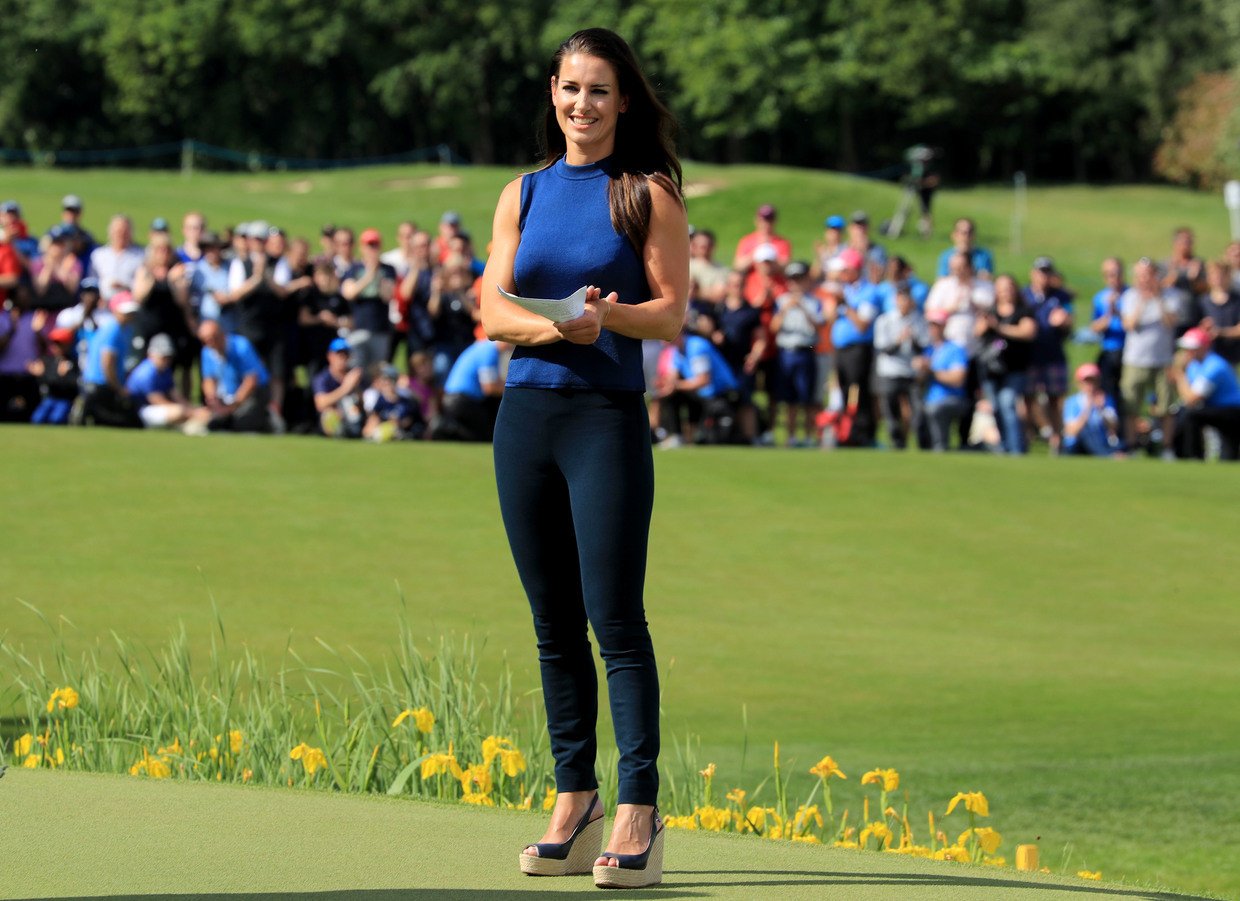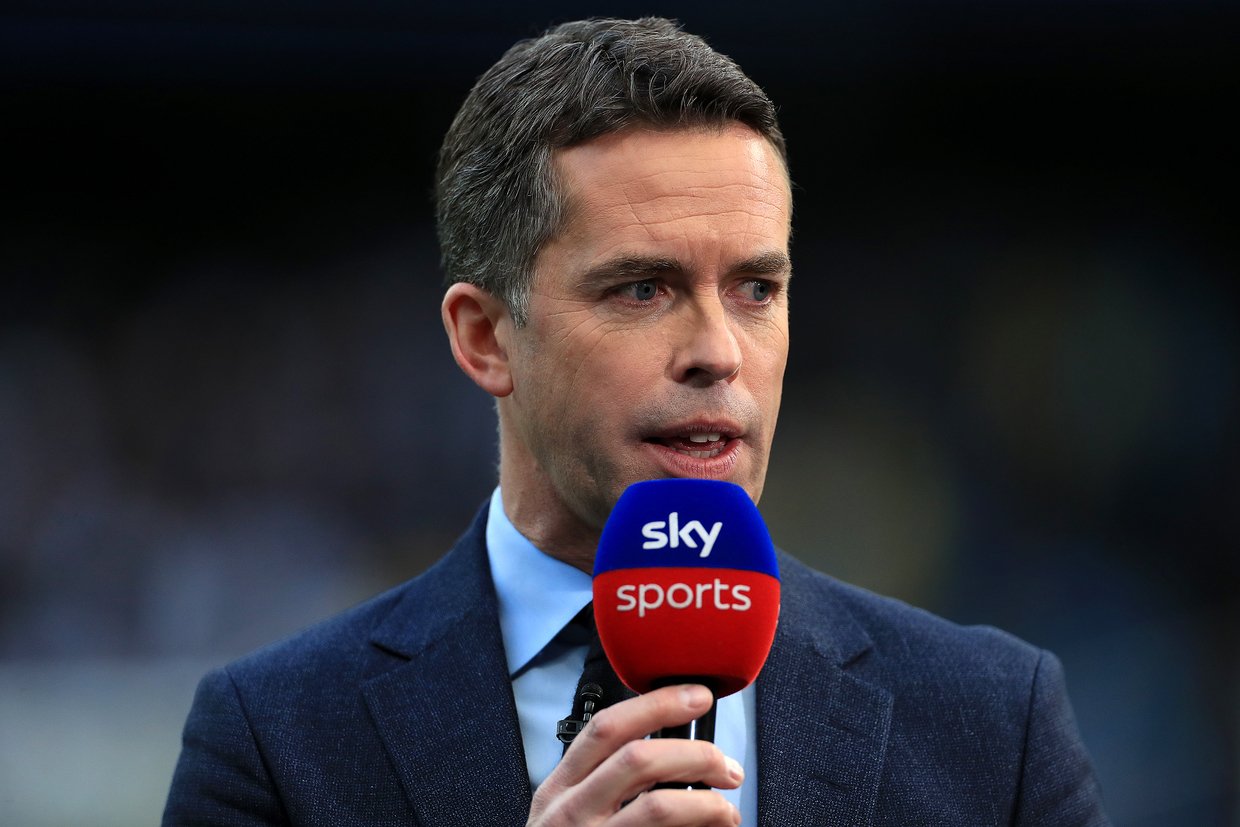Sky Sports trigger knee-jerk outrage after asking viewers to rate 'sexiness' of presenters – but are looks really an issue?

With viewers looking at them for hours on end, you can understand why presenters don't enjoy the idea of being judged on their looks in a survey. But is a question sent by Sky Sports by accident really worthy of woke fury?
Sports news channels have always been a curious concept. Meaningless to non-fans, visual chewing gum for casual supporters and cherished by obsessives, their introduction to mainstream TV in the UK in the early 1990s helped to set in motion the path to an age of unrelenting live action, interviews and gossip.
Ostensibly a bit silly – no-one needs to wear a suit to chat about expected goals – their inception also aimed to reflect always-on sports news as a worthy peer of hard news and politics, a necessity for an audience requiring rolling insights and updates.
When it launched in the UK more than a year before the start of the modern Premier League, Sky sharpened the look and intensity of bulletins, but questions have persistently lurked around the gender balance of sports news channels that have usually looked more like meetings of slick estate agents than dedicated hacks.
A low point arrived in 2013, when television bosses appeared in front of a parliamentary select committee to face questions about their employment criteria, with politicians observing that female presenters across the board tended to be almost exclusively “very young” and “attractive,” looking noticeably different to their “middle-aged, fat and bald” male counterparts.
"There's a feeling out there that if you're over 30 in the sports pundit game then you're finished,” the Labour party’s Jim Sheridan said at the time, offering a depressing appraisal for most viewers who had ever faintly dreamed of turning their bar stool analysis into a primetime career.

All of which has seen the discovery that Sky subscribers have been asked to rate Sky Sports presenters by their looks provide plenty of uproar. In a development that has been jumped on by the PC brigade, viewers were asked to consider pictures of various presenters and fill out tick boxes offering snap judgements including “sexy,”“good looking” and “arrogant.”
Some of the presenters in question have reportedly raised their discomfort with their bosses, not least because they only found out after one was informed that they appeared in one of the questions by a surprised relative who had been carrying out the survey.
On the face of it, it makes sense for directors to ask audiences about their aesthetic opinions of a show that they might spend hours watching. Even the most unobservant of watchers would find it hard to imagine a full day of viewing without the risk of encountering at least one immaculately styled, impossibly beautiful face looking back at them.
Yet for all the ensuing jokes and outrage, the pointless survey questions – Sky said they were sent by accident – undoubtedly point to a lack of thought and communication rather than anything more sinister.

Opaque questionnaires and psychological profiling are all the rage among people who spend their time trying to draw meaningful answers, with data – often of any description – treated as gold dust. Likewise, audience figures – and, by association, satisfaction – are the main driving force behind decisions.
First impressions can count, but even the most woke of critics need only carry out a modicum of research to see that looks aren’t everything in an industry that is no beauty contest.
The problem, then, is a disconnect between quantitative and qualitative measures, and the often very different worlds of editors and market researchers.
Sports fans ultimately value wisdom and wit more than polish and pop star looks, experience over buzzwords, substance over style. Just look at the reaction when the BBC quietly laid off some of its most respected, long-serving presenters early this year, losing loyal audiences along the way.
Studies have consistently shown that more effort needs to be made to encourage and uphold diversity, nurturing talent of all types and making a comprehensively broad range of future presenters feel comfortable embarking on a career.
Sport and broadcasting bosses know that – and have greater worries right now than a bad marketing mistake.
By Ben Miller















